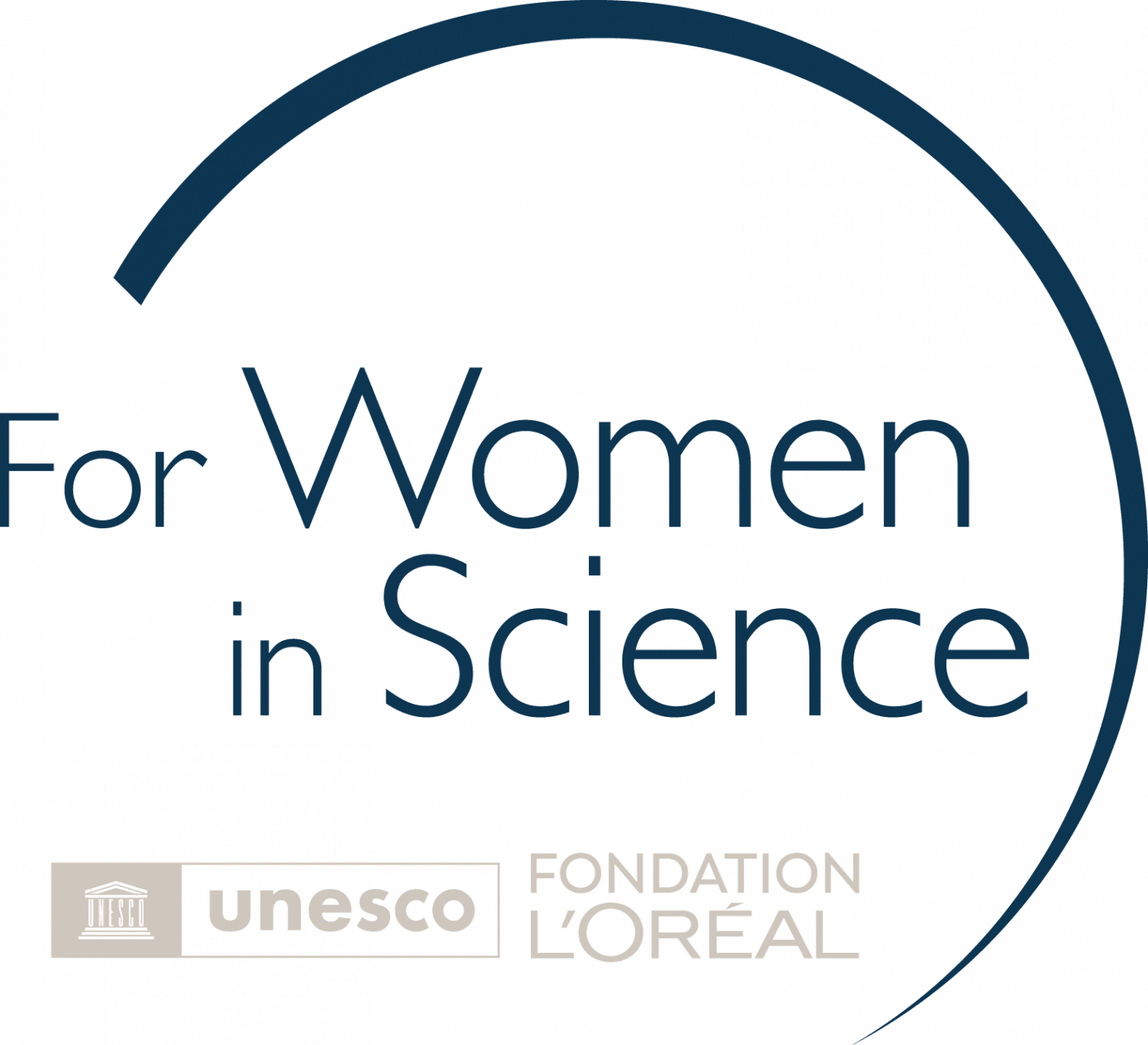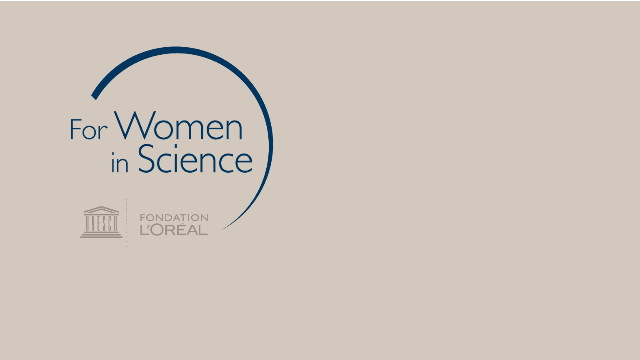L’Oréal and UNESCO announce For Women in Science 2020 Fellows
05.21.2020
21 May 2020 - The L’Oréal and UNESCO For Women In Science programme was founded 22 years ago on the premise that ‘The world needs science, and science needs women,’ a statement that rings true today more than ever.
The winners of the 2020 L'Oréal-UNESCO For Women in Science UK and Ireland Rising Talents were announced today during a virtual ceremony surrounded by guests of the scientific community, industry leaders, and members of government. In light of these unprecedented times, L’Oréal and UNESCO are proud to remain fully committed in our celebrations of the extraordinary successes of women in science.
Since inception, the L'Oréal-UNESCO For Women in Science programme has recognised over 3,000 women from 117 countries for their research and contribution to science. Across the UK and Ireland, 57 outstanding female scientists across the fields of physical sciences; engineering; mathematics and computing and life sciences have been awarded a dotation worth £15,000 (equivalent € in Ireland).
These grants have been designed to provide flexible and practical financial support for winners to spend on scientific equipment, paying for childcare, travel costs or indeed whatever they need to continue their research. In addition to financial support each year past and present fellows receive training and networking opportunities supported by L’Oréal.
L'Oréal UKI Chairman Geoff Skingsley commented: “Women currently represent less than 30 per cent of the world’s scientific researchers as a result of gender bias. The outstanding women we recognise today through the For Women in Science UK and Ireland Programme are not only exceptional in their respective fields, but also representative of the future of science. L'Oréal is proud to continue our partnership with UNESCO as we work to further the empowerment of women, enabling equal representation throughout the scientific community.”
UK National Commission for UNESCO, Secretary-General James Bridge said:
“UNESCO, the United Nations Cultural, Educational and Scientific Organisation, was founded in London in 1945 to build understanding between the world’s peoples and countries, with the aim of preventing conflict. In this 75th anniversary year of UNESCO, these outstanding women scientists and their exceptional work is part of building that understanding. They are creating links and sharing expertise around the world and making an essential contribution to solving global problems. UNESCO is grateful for L'Oréal’s longstanding investment in the Women in Science programme.”
Congratulations to 2020 Fellows:
LIFE SCIENCES WINNER
Sarah Pickett
Known as the ‘powerhouse of the cell’, mitochondria are responsible for converting food energy into cellular energy. Any changes within the mitochondrial DNA can lead to mitochondrial disease, and so Dr Pickett is researching the fundamental mechanisms behind the most common mutation – the A to G switch (m.3243A.G). Not only will these help clinicians to treat the huge range of diseases that result from this, it will also make variation within symptoms far easier to predict. Passionate about encouraging diversity and inclusion within the academic environment, she proposes to use the funding to employ a part-time technician in her lab – this will offer them a chance to re-establish their own career whilst carrying out ground-breaking research.
PHYSICAL SCIENCES WINNER
Jennifer Carter
Dr Carter works to understand the effects of ‘space weather’ on the Earth’s atmosphere. With her research proposal, Dr Carter intends to track the ‘substorms’ that arise from their interactions with the magnetosphere, by using a joint spacecraft mission between the European Space Agency and the Chinese Academy of Sciences. Collaborators will launch a satellite - SMILE (Solar wind Magnetosphere Ionosphere Link Explorer) - in 2023. The records from this satellite, however, will not provide a broad enough data set to understand fully the substorm cycle that results from these space weather disruptions. Dr Carter therefore intends to design and develop a data fusion facility to understand multiple datasets from both the satellite and ground experiments globally. This will enable the global solar-terrestrial physics community to extrapolate information from both the spacecraft and ground based technology in order to gain a deeper understanding of the potential risks to our future.
MATHEMATICS AND COMPUTING WINNER
Joy Egede
Dr Egede has dedicated her research career to understanding the signals and triggers of pain in infants. Since neonates are unable to communicate pain verbally, Dr Egede’s research focuses on the assessment of pain using alternative methods. Dr Egede’s proposal centres around the idea of using machine-assisted pain estimation methods in order to accurately predict what infants are feeling. Dr Egede’s research is innovative, however, as it seeks to consider the brain’s activity as well. This is vital work as clinical studies have repeatedly shown that inadequate treatment of infant pain could have a severe impact on their neurological development later in life.
ENGINEERING WINNER
Yijing Xie
Surgery is becoming increasingly reliant on technology to enhance procedure and increase survival rates, as machines are often able to calculate complexities of the body on a minute scale. Dr Xie’s research lies at the interface of engineering and biology, as she is working on a non-invasive functional Multispectral Light Field Imaging system (fMLFI) for maximal safe tumour resection. Nearly 6,000 new brain tumour cases are diagnosed every year, and only 18.5% of those patients survive for five years after this. Surgically speaking, tumour removal is the optimal treatment plan, however it requires intense precision can lead to severe postsurgical cognitive or motor deficits if it goes wrong. Dr Xie is recognises that it is vital to be able to monitor the tissue that surgeons are operating on carefully. As she further explains, “This novel imaging system will possess advantages of several technologies to create an improved imaging system designated for use in a surgical environment”. By increasing visibility and effectiveness of brain monitoring Dr Xie’s work is incredibly exciting, Her project could drastically improve the imaging of the brain and make tumour resection surgery far more successful in the future.
SUSTAINABILITY SCIENCE WINNER
Aida Cuní-Sanchez
Dr Cuní-Sanchez is working to understand which indigenous tree species can be cultivated in farmers’ fields under the complex conditions of the mountainous ‘Albertine Rift’ region in Africa. Across four sites in Central Africa, she aims to determine which trees are most useful for food security of local communities, and how to cultivate them from seeds. She then plans to train local communities on related agroforestry and cultivation techniques. With Dr Cuní-Sanchez’s work, farmers’ fields will be more productive, contributing to food security, better health and combating climate change. Her motivation for this proposal is to use such expertise to help society, as she believes that ‘science should be beneficial to people’.

Comments0
Please log in to see or add a comment
Suggested Articles



